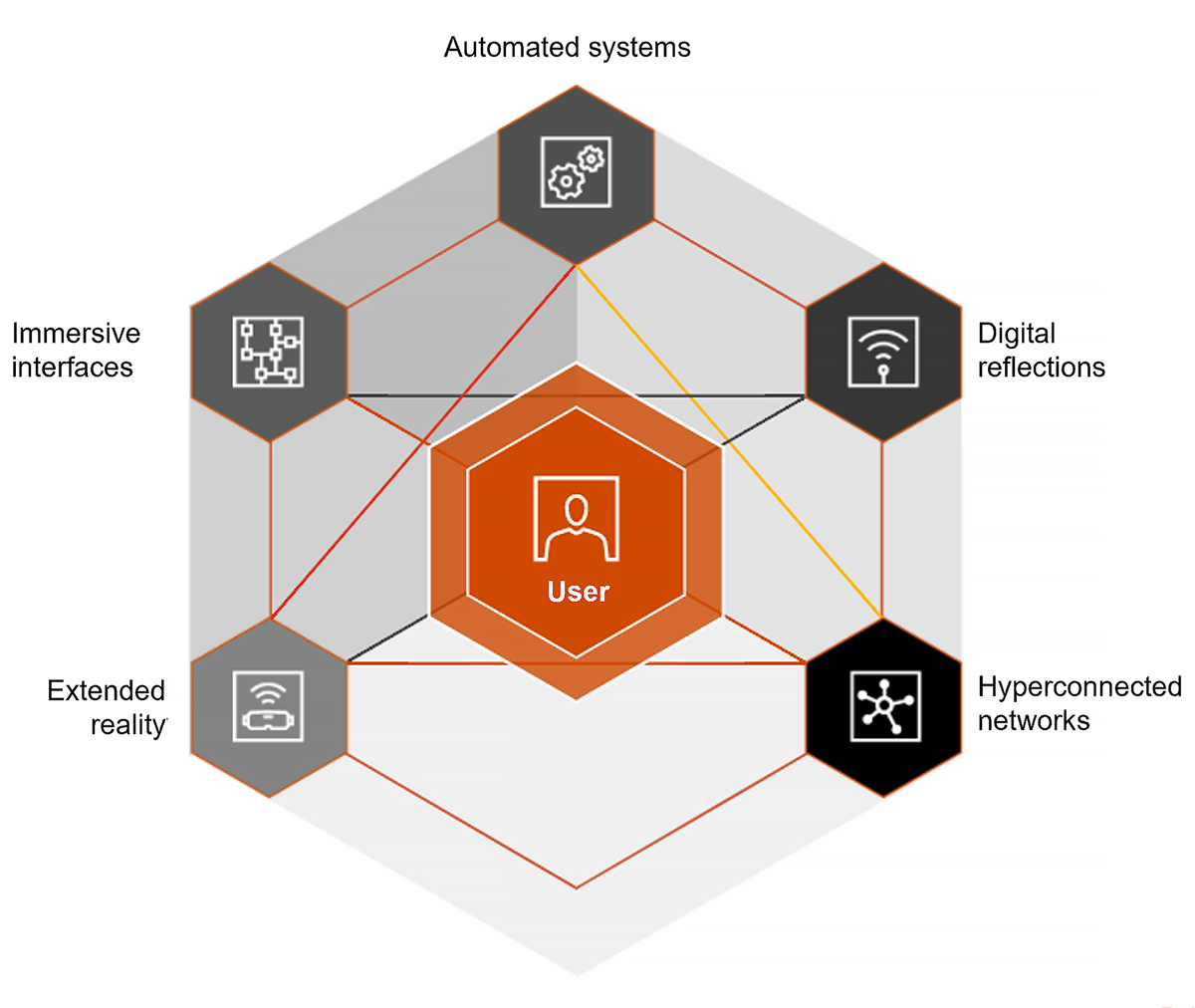{{item.title}}
{{item.text}}

{{item.text}}
Building trust in digital assets
The metaverse is an evolution, not a revolution. And it's one that business leaders should not ignore. It may profoundly change how businesses and consumers interact with products, services and each other. However, with new technologies come new risks, it is essential to formulate new strategies and new methods to build trust. PwC is here with you to navigate the endless possibilities and uncover the hidden values in the metaverse.
Many forward-thinking companies are venturing into the metaverse to capture its huge business opportunities to:
The metaverse is generally defined as a collective virtual space promising an immersive and persistent 3D digital world where we can work, play, socialise and do business together while at the same time owning our assets enabled by augmented reality (AR), virtual reality (VR) and non-fungible tokens (NFTs).
Web2 refers to the current version of the Internet. Web3 is its next iteration, which will be decentralised, open, and of greater utility.
Two key types of metaverse each brings different experiences and opportunities.
To make a digital world where you and your customers can transition seamlessly among multiple experiences offered by various providers, we need a connectivity. This connectivity will require a new architecture for the internet, often called Web3. The idea is that first came static web pages (Web1). Then came our current internet (Web2) with dynamic content, but only within platforms that companies own and govern. Web3, which internet innovators and investors are currently working on, is supposed to be a decentralised structure with countless interoperable platforms.
Cryptocurrencies, non-fungible tokens (NFTs) and other blockchain-based digital currencies, assets and exchanges will likely underpin value exchange across the metaverse. Further innovation will be needed as governments, companies and new, digital-only organisations work to build trusted digital monetary systems, offer new data monetisation propositions and conduct lending, payments, real estate investment and more in the metaverse. Decentralised autonomous organisations (DAOs) — with voluntarily agreed-upon rules enforced by a computer program that runs on a blockchain — will likely play important roles.
A true metaverse requires seamless interoperability among users and platforms, based on web3 and still-to-be-determined standards. While this interoperability will offer new possibilities to reach and understand customers, it will also raise new challenges for gathering and protecting data, and for cybersecurity and privacy. It may also undermine business strategies built around keeping users and their data in a given platform. Competitive advantage may shift to those companies that offer (through hardware or software) trusted ways for users to enter the metaverse.
The metaverse will need rules of engagement for users, rules for how the metaverse itself can change over time and enforcement mechanisms, including for tax collection, data governance and regulatory compliance. Early movers may be able to help set these rules. Security will be paramount, as a new, decentralised digital world may offer malicious actors a new world of entry points for attack. Authenticity — and trust more broadly — should also be front and center, to reduce the disinformation that has often plagued the internet.
In the internet today, identity is often linked to platforms. It may be true, pseudonymous or anonymous. The metaverse, decentralised and interconnected, will need trusted digital identities — for people, assets and organisations — that port across platforms. Companies active in digital identity now may both help set the metaverse’s standards and be able to offer a necessary service. Digital identities may also be central to permitted data collection and data governance in a decentralised environment.
A shared, persistent and immersive 3D digital world will offer unique experiences, based on its own aesthetics — beliefs, ideals and tastes as expressed in individual choices. Some trends for user experience are already becoming clear, in games and VR / AR environments. Companies that create trusted metaverse experiences and protect privacy rights may win consumer loyalty, while those that stay on top of metaverse trends may be well placed to forecast consumer preferences and behaviour.
A true metaverse should reflect in real time the changes made in it by different participants, entering and leaving it in different ways, in different places, at different times. When you take your metaverse headset off, the metaverse and other participants will continue their activities uninterrupted, with (for example) smart contracts enforcing agreements and trading assets. This persistence will likely require a new approach to digital assets and activities, including services and applications that are portable, dynamically configurable and extensible.
The seeds of this virtual universe exist now as isolated experiences, but many of its concepts are already business-relevant.
Metaverse vision, strategies and business models, mergers and acquisitions
Digital asset management, custody and governance
Project management, contracting, build and deployment
NFT strategy and monetising hidden value
Operating model, platform; vendor selection and integration
It’s challenging to ensure tax compliance when the technologies, business opportunities and rules are all evolving under the metaverse. Gwenda Ho, PwC Hong Kong TMT Tax Leader, shares with you how to navigate metaverse tax challenges and approach tax with trust in the metaverse.
{{item.text}}

{{item.text}}








